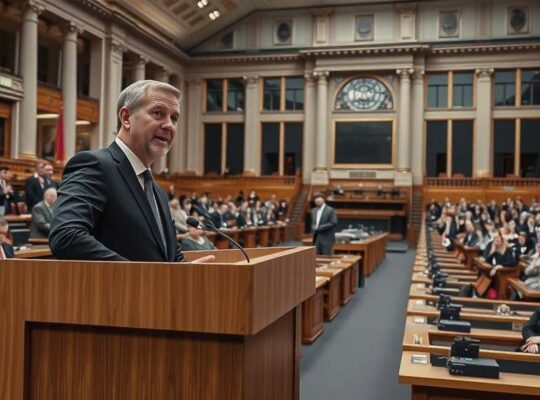Despite trailing in current polling data, Cem Özdemir, the Green Party’s leading candidate for the upcoming Baden-Württemberg state election in March 2026, maintains the possibility of a victory. In an interview with “Handelsblatt”, Özdemir emphasized the fluidity of the political landscape, stating that the election’s outcome remains undecided. He attributed this potential for change to a growing voter frustration with the persistent polarization and escalating tensions characterizing German politics.
While Green Party support currently hovers around 20% in Baden-Württemberg, the CDU holds a significant lead at roughly 30%, the polling figures reveal a curious dynamic. Özdemir enjoys notably higher personal approval ratings than his CDU counterpart, Manuel Hagel, suggesting that the campaign’s effectiveness in framing Özdemir as the champion of Baden-Württemberg’s interests could prove decisive. This disparity in popularity highlights a potential vulnerability for the CDU, raising questions about the efficacy of their messaging and whether it resonates with the electorate.
Critically, Özdemir also addressed the risk of losing left-leaning voters to the Left Party (Die Linke), particularly in urban centers. He articulated concern, stating he sees a lack of constructive engagement from Die Linke, alleging the party demonstrates a reluctance towards governance and systemic change. This commentary signals a strategic effort by the Green Party to consolidate the left-leaning vote, directly challenging Die Linke’s appeal and potentially impacting coalition possibilities. The assertion, although potentially divisive, underscores a calculated maneuver by Özdemir to define the political spectrum and solidify the Green Party’s position within it, framing them as the viable, practical alternative for voters seeking progressive change.












